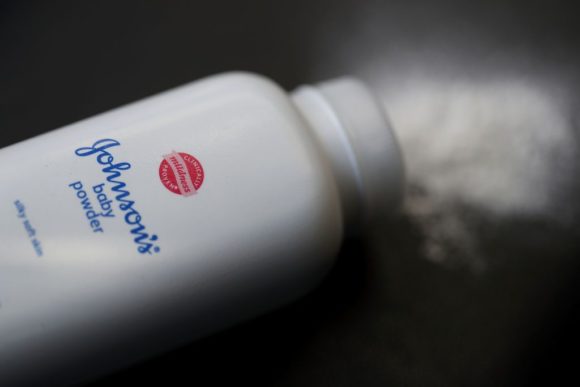A New Jersey appeals court on Tuesday threw out a $223.8 million verdict against Johnson & Johnson that a jury had awarded to four plaintiffs who claimed they developed cancer from being exposed to asbestos in the company’s talc powder products.
The Superior Court of New Jersey, Appellate Division found that a lower court judge should not have allowed some of the scientific expert testimony the plaintiffs presented to jurors at trial.
J&J Worldwide Vice President of Litigation Erik Haas said in a statement that the decision “resoundingly rejects … the ‘junk science’ advanced by purported ‘experts’ paid by the mass tort asbestos bar.” The company again said that its talc products are safe and do not contain asbestos.
A lawyer for the plaintiffs did not immediately respond to a request for comment.
The jury in the case had ordered the company to pay $37.2 million in compensatory damages and $750 million in punitive damages, though that amount was automatically reduced to $186.5 million under state law.
In reversing the verdict and ordering a new trial, a three-judge panel of the appeals court found that the trial court failed to fulfill its “gatekeeping role” of assessing whether the plaintiffs’ experts based their testimony on sound science.
In their opinion, the judges found that three experts had not explained the facts or methods they used to support their opinions that the plaintiffs got cancer from being exposed to asbestos in talc products.
J&J is separately suing one of those experts, Jacqueline Moline, over a study she co-authored in 2019. That study was not at issue in Tuesday’s decision.
Moline, who has testified for plaintiffs in more than 200 talc cancer cases, has argued that the lawsuit is an effort to “intimidate” scientific experts and prevent them from testifying against the company.
J&J faces more than 38,000 lawsuits alleging that its talc products, including Johnson’s baby powder, can contain asbestos, and caused cancers including ovarian cancer and mesothelioma, a type of cancer linked to asbestos exposure.
The claims have a mixed record of success, with major plaintiff wins including a $2.1 billion judgment awarded to 22 women with ovarian cancer. That verdict was upheld by an appeals court, and the U.S. Supreme Court declined to review it.
J&J has recently won reversals of some cases that went against it, including of a $117 million verdict in the same New Jersey appeals court and a $120 million verdict in New York.
The company’s latest win comes after it failed for a second time in July to move tens of thousands of claims over talc into bankruptcy court, where it hoped to resolve them through a proposed $8.9 billion settlement. It is appealing that ruling.
Trials had mostly been on hold while J&J petitioned the bankruptcy court, but will now be able to resume. One trial that was allowed while the bankruptcy petition was pending ended with an $18.8 million verdict for a terminally ill California man.
J&J has said the cost of its talc-related verdicts, settlements and legal fees have reached about $4.5 billion.
The company stopped selling talc-based baby powder in favor of cornstarch-based products, citing an increase in lawsuits and “misinformation” about the talc product’s safety.
Was this article valuable?
Here are more articles you may enjoy.


 Canceled FEMA Review Council Vote Leaves Flood Insurance Reforms in Limbo
Canceled FEMA Review Council Vote Leaves Flood Insurance Reforms in Limbo  Why 2026 Is The Tipping Point for The Evolving Role of AI in Law and Claims
Why 2026 Is The Tipping Point for The Evolving Role of AI in Law and Claims  UBS Top Executives to Appear at Senate Hearing on Credit Suisse Nazi Accounts
UBS Top Executives to Appear at Senate Hearing on Credit Suisse Nazi Accounts  Founder of Auto Parts Maker Charged With Fraud That Wiped Out Billions
Founder of Auto Parts Maker Charged With Fraud That Wiped Out Billions 